EU, Iran Call For A Pause In Nuclear Talks To Iron Out Problems
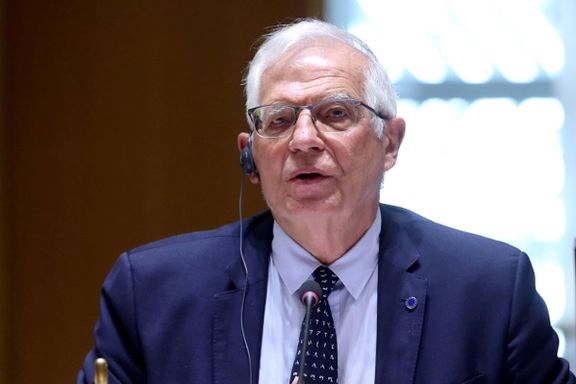
Calls for a pause in Iran's nuclear talks with world powers gathered momentum on Friday as both Tehran and the European Union hinted at a temporary break.

Calls for a pause in Iran's nuclear talks with world powers gathered momentum on Friday as both Tehran and the European Union hinted at a temporary break.
EU foreign policy chief Josep Borrell said on Friday a final text regarding the revival of the 2015 nuclear accord between Iran and world powers is "essentially ready and on the table" but a pause is needed in the talks due to "external factors."
Iran's foreign ministry spokesman Saeed Khatibzadeh shortly after Borrell's statement tweeted that a pause in the negotiations "could be a momentum for resolving any remaining issue and a final return."
The pause is apparently is the only option at a point where Russia has introduced its own demand in the talks, which requires a diplomatic solution. Moscow has demanded a guarantee from the United States that its ties with Iran should be exempted from Western sanctions imposed for the invasion of Ukraine.
"As coordinator, I will, with my team, continue to be in touch with all JCPOA participants and the US to overcome the current situation and to close the agreement", Borrell said on his Twitter account.
Other issues also remain to be solved between Washington and Tehran. State Department spokesman Ned Price said on Thursday that although few problems remain to be overcome, they are are important ones.
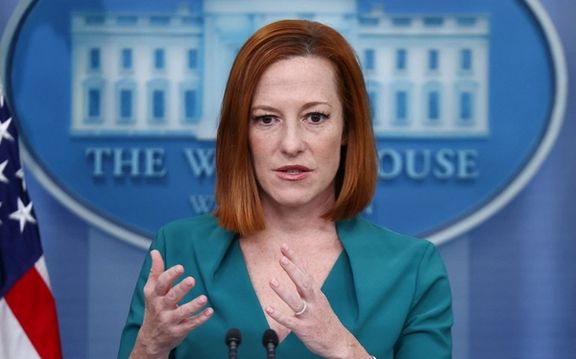
The White House said on Thursday the United States would continue to have diplomatic talks with Iran about a nuclear deal.
"Our view is that we are close. We have been close for some time now," White House spokesperson Jen Psaki said. "The end of negotiations is always when the difficult and challenging parts of the conversation typically take place."
Iran has refused to hold direct talks with the US. European countries and Russia have been acting as mediators in Vienna talks that began almost one year ago.
The United States and other participants in the Vienna talks have been repeatedly saying a deal is close in recent weeks. However, multilateral, formal session have ended in Vienna as diplomats say the time has come for political decisions.
The details of what issues still remain unresolved are not known, but Iran apparently has been demanding that its Revolutionary Guard be taken out of the US Foreign Terrorist Organization (FTO) designation.
Russia on Saturday introduced a new complicating factor into the already complex situation by demanding that its economic and other relations with Iran be exempted from sanctions imposed for of its invasion of Ukraine.
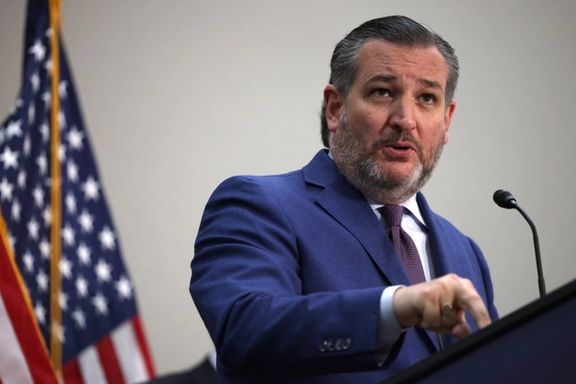
Groups of US lawmakers have expressed deep concern to President Joe Biden over a potential agreement in Vienna to revive the 2015 Iran nuclear deal, or JCPOA.
Nine Republicans and 11 Democrats House members in a letter obtained by the Jewish Insider said on Thursday, “it is hard to envision supporting an agreement along the lines being publicly discussed.”
The 20 signatories - led by Republican Tom Reed, and Democrats Josh Gottheimer and Elaine Luria – said they had hoped that “renewed negotiations with Iran would achieve a longer and stronger agreement than the JCPOA (Joint Comprehensive Plan of Action), with clear nuclear restrictions and provisions addressing Iran’s international terror and missile programs.”
The move came after a group of Republican lawmakers on Wednesday urged Biden not to make a deal in Vienna, saying it would be a big win for Russian President Vladimir Putin.
“Putin will make billions in oil and gas transactions, in nuclear transactions and in weapons transactions,” Republican Senator Ted Cruz leading the charge said.
Sen. Jim Risch, (R-Idaho), said the US should walk away from a deal being negotiated by Russia and Iran, “two of our worst enemies on the planet.”
“This doesn't need to be done right now,” Risch said. “And particularly, it doesn't need to be done when we have the problems going on that we have in the Ukraine. We should walk.”
The letter by 20 Representatives opposed “the potential lifting of the Foreign Terrorist Organization (FTO) designation of the Islamic Revolutionary Guard Corps (IRGC) and of the sanctions placed on members of the office of the [Iranian] Supreme Leader.” The measures cited were both introduced by Trump executive orders after his administration withdrew the US in 2018 from the JCPOA.
The signatories said Iran was “the world’s leading state-sponsor of terror,” and that easing sanctions would pave “a clear path for Iranian proxies to continue fueling terrorism,” a reference to Iranian allies deemed ‘terrorists’ by the US, including Palestinian groups and Hezbollah.
Support ‘contingent on answers’
The lawmakers listed 16 questions about the Vienna talks, claiming their support for any agreement in Vienna would “be contingent largely on satisfactory answers to the questions.” They urged President Biden to brief them within the next week.
The questions included whether any agreement would be reviewed by the Congress, something the Biden administration has already ruled out. The lawmakers said they wanted to be told exactly which US sanctions would be lifted, and what Iran’s ‘break out’ time would be – referring to the period required in theory to assemble a crude nuclear weapon, one greatly reduced since early 2021 when Iran began enriching uranium to 60-percent purity.
The Congressmen and women also wanted to know whether Russia might derive any economic benefits (presumably through trade with Iran), whether Russia would return Iran’s nuclear material if it decided the deal has been breached, and whether Russian President Vladimir Putin (presumable rather than mechanisms established under the JCPOA) would be de facto judge of compliance with the agreement.
They also demanded to know what would happen if Iran violated the agreement once the ‘snapback mechanism,’ allowing the reimposition of sanctions on Iran, lapsed in 2025; and exactly how much money Iran would gain from easing sanctions. They also demanded to be informed if the Biden administration would ask Congress to lift other sanctions in 2023, and how US ‘human rights’ policies might be affected by reviving the JCPOA.
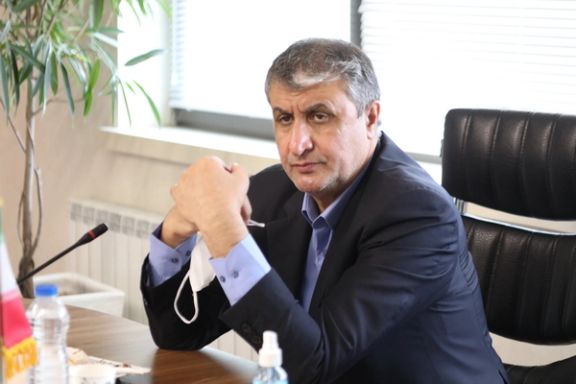
The head of the Atomic Energy Organization of Iran (AEOI) says the country’s nuclear industry is controlled from Tehran, not Vienna.
Mohammad Eslami speaking to a group of reporters in Tehran on Thursday stressed that Iran’s emphasis in the Vienna talks was on seeing sanctions removed. He added that Iran would meet its obligations under the 2015 agreement, the JCPOA (Joint Comprehensive Plan of Action), as sanctions were lifted in a verifiable manner and the necessary guarantees given by world powers. Eslami
Eslami said last week Iran was ready to clear up by June 20 outstanding questions raised by the International Atomic Energy Agency (IAEA) over Tehran’s nuclear work before 2003. While this is a requirement under Iran’s safeguards arrangements under the Nuclear Non-Proliferation treaty and not linked to JCPOA restoration, there has been speculation that the issue was muddying the Vienna talks.
In his report to the IAEA board meeting Monday, IAEA chief Rafael Mariano Grossi highlighted that “making progress on the clarification of the outstanding safeguards issues” with Iran remained an agency priority.
In Vienna Wednesday, the US Deputy Chief of Mission to the IAEA Louis Bono expressed “significant concerns” over Iran’s responsibility for transparency under the Nuclear Non-Proliferation ‘safeguards’ rules, noting that Iran needed to answer agency questions over its nuclear work before 2003 as “a legal obligation separate from its JCPOA commitments.”
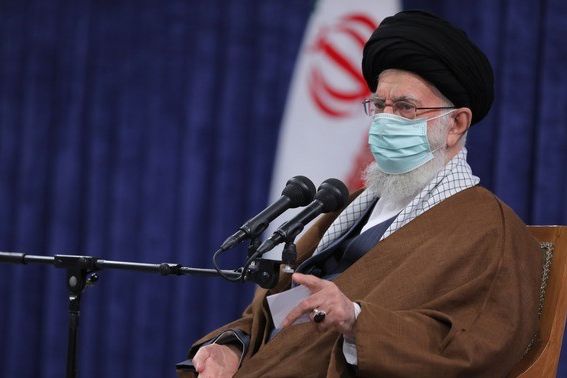
Iran's Supreme Leader on Thursday appeared to be upping the ante in the talks to restore the 2015 nuclear deal after a period of relative silence on the issue.
"It's a big error to bow to the pressure from America or other powers to secure protection against sanctions, which will deal a blow to the nation's political power," Supreme Leader Ali Khamenei said in an address to members of the Assembly of Experts.
"Our regional power provides us with strategic depth and more national strength, why should we give it up? Advancement in nuclear science will help us meet the country's needs in the future, who can we turn to a few years later if we give it up now?" he said, adding that there was nothing more "naive and inexpertly" than suggestions to reduce the country's defensive (military) power to "avoid raising the enemy's sensitivity".
"Over time [many] such feeble and faulty suggestions have been made, all of which were revocable, and they were revoked. Iran would be facing great dangers if those who wanted to sever some of the arms of national power were allowed to do so," he said in a rather uncompromising tone.
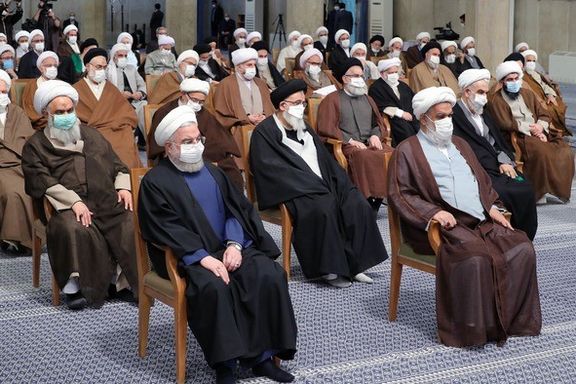
In his speech Khamenei cited “security and defense power", the "power of politicking and bargaining to fulfill national interests at the regional and global front”, and securing a strong economy and public’s wellbeing among the "pillars of national power". “None of these arms of national power should be cut off in favor of one pillar and the other,” Khamenei said.
Iran has been enriching uranium to 60-percent purity since early 2021 shortening the time it would need to reach 90-percent needed for a nuclear bomb. It first started to enrich to 20-peercent purity in 2019 when the United States strengthened oil sanctions imposed a year earlier when former president Donald Trump withdrew from the Joint Comprehensive Plan of Action (JCPOA). The higher-level enrichment violates the nuclear agreement.
Officials say sanction have affected people's livelihoods but insist the government is finding ways to minimize their impact and the country can endure. In his speech Khamenei made no mention of how he intends to ensure "public welfare and easy livelihood" if sanctions were not lifted.
Iran has also continued expanding its ballistic missile and other weapons programs, resisiting any Western attempts to discuss limitations.
A key website, Nour News, on Thursday insisted that a nuclear deal would not stop Iran's missile program and praised Tehran’s negotiators in the Vienna nuclear talks for having thwarted US attempts to force Iran to discuss its missile program. On Saturday the Revolutionary Guards (IRGC) unveiled two underground missile bases and on Tuesday put a second military satellite into orbit.
Earlier on Thursday, secretary of the Supreme National Security Council (SNSC), Ali Shamkhani said nuclear talks "get knottier by the hour" and accused the US of not being interested in a "strong deal".
Officials involved in the talks in Vienna last week, including the Russian envoy to the talks, appeared very optimistic about reaching a deal even as early as this week. Uncertainties arose on Saturday when Russian Foreign Minister Sergei Lavrov said Moscow wanted written guarantees from the US that its nuclear and economic relations with Tehran would not be affected by sanctions over Russia's invasion of Ukraine.
Despite the new complication Tehran and Moscow argue that major and secondary issues have remained unresolved, which the Western side should address before a final text can be agreed on and hold the US responsible for the delay in signing the deal.
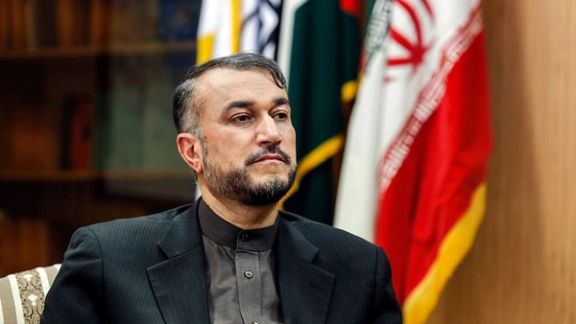
New demands by the US in talks to revive the 2015 nuclear deal are unjustified, Iran’s Foreign Minister Hossein Amir-Abdollahian told EU’s foreign policy chief.
The foreign minister did not explain what Washington’s new demands were, but he made an indirect reference to Tehran’s insistence on lifting US sanctions imposed on the Revolutionary Guard (IRGC) and several high-ranking officials.
Amir-Abdollahian told EU’s Jodep Borrell that “Some issues are related to our national heroes and cannot be discussed,” according to Fars news in Tehran affiliated with the IRGC.
Reports emerged last week that the Biden Administration has agreed to lift sanctions imposed on IRGC and several former and current Iranian officials implicated in terror-related activities.
The news led to protests by Republicans and others in the United States. Several lawmakers wrote to President Joe Biden asking him to stop talks aimed at reviving the Obama-era nuclear deal known as JCPOA.
Amir-Abdollahian told Borrell, according to Fars, that Tehran cannot accept US requests based on American domestic opposition to certain points discussed in the nuclear talks.
“America cannot use the excuse of public opinion to say something new every day…If America has a public opinion problem…we also have,” the minister said.
Russia on Saturday introduced new demands asking exemption from Ukraine sanctions in its dealings with Iran, adding a new complicating factor in the Vienna talks. Iran has not opposed Russia’s demands, insisting that the US is delaying an agreement.